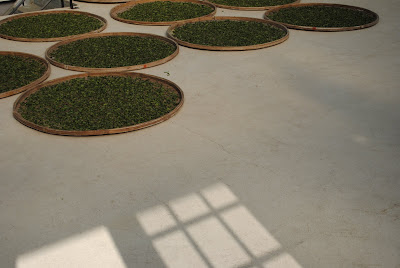
Indeed, 90,000 pounds of tea being dumped into Boston Harbor by barely disguised, openly disgusted colonists on December 16, 1773, was a seminal event for American independence. I wasn't quite yet obsessed with tea at that point, though. What finally got me interested in it was recently reading over some newspapers and books from the time (coincidentally, while sitting next to a somewhat quieter, new radiator in my hometown library- my former elementary school. So what if it took 30 years for me to pay attention?)
Tea was taboo in New England in the late 1770s; in order to show solidarity to the burgeoning movement of Down With The King (And Taxes, Too), colonists chose to stop consuming it.
"Do not suffer yourself to sip the accursed, dutied STUFF. For if you do, the devil will immediately enter into you, and you will instantly become a traitor to your country."
- Newport Mercury, Jan. 24, 1774
Apparently, a big part of this anti-tea movement ended up focusing on women. The boy's club could put down their cups for the sake of liberty, no problem. American ladies were a bit harder to convince:
"The women are such slaves to it, that they would rather go without their dinners than without a dish of tea."
- Abbe Claude C. Robin, New Travels Through North America, Boston, 1784
It was also feared that these insatiably thirsty women might badly influence their high-minded mates.
"For the New-England husbands, however they may intimidate British merchants and the British administration, are, in their own houses, too much on the hen-pecked establishment, to be able to carry such a measure against the Sovereign and absolute authority of their fair helpmates."
- Gazetteer and New Daily Advertiser, June 14, 1770
The hens finally got it together, though. "To their immortal honor," the women of Boston took a solemn oath never to drink another cup (Essex Gazette, December 28, 1773). The patriotic pressure that turned this country off tea led us straight into the waiting arms of coffee- and the often marginalized state we American tea drinkers find ourselves today.

So raise your cup, and wonder: Would I give up tea in the name of freedom from oppression? Hmm. After a sip of this Wuyi oolong from Lock Cha, I'm not so sure.




























